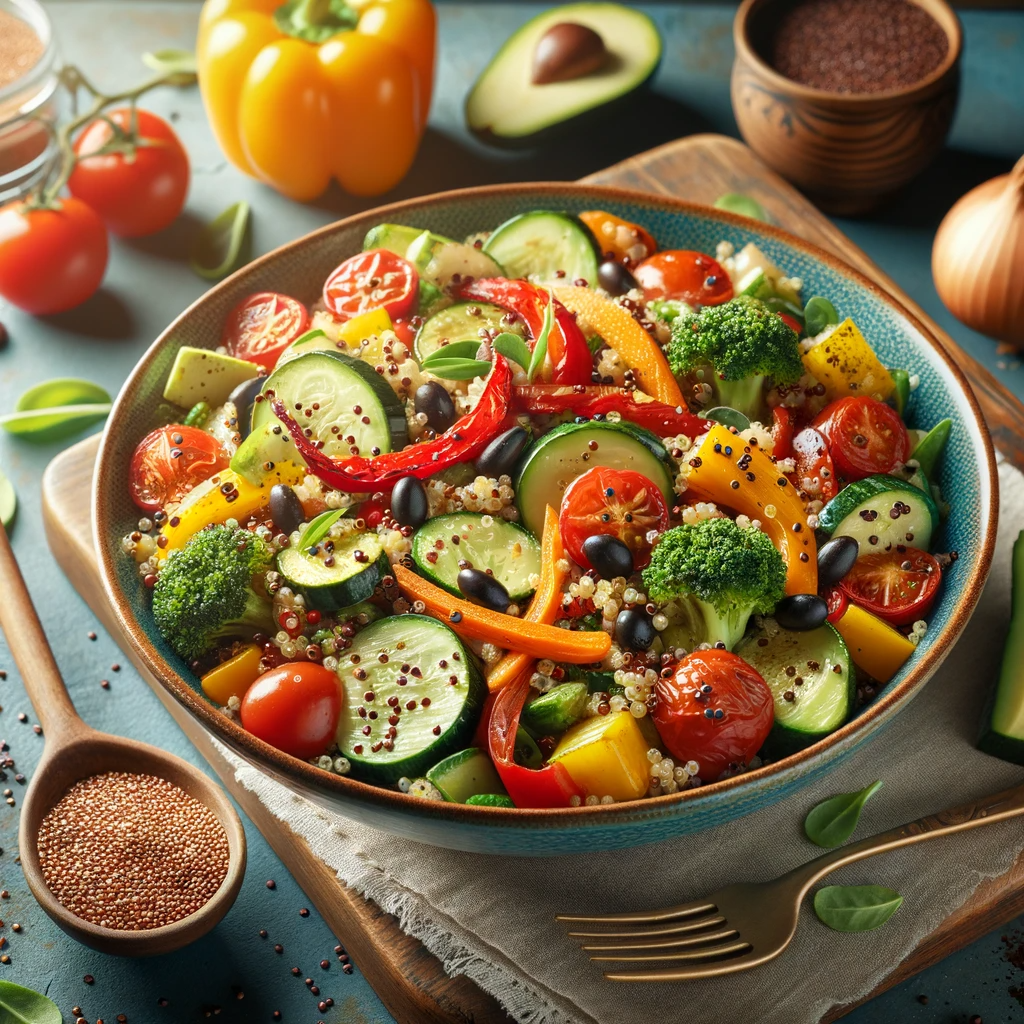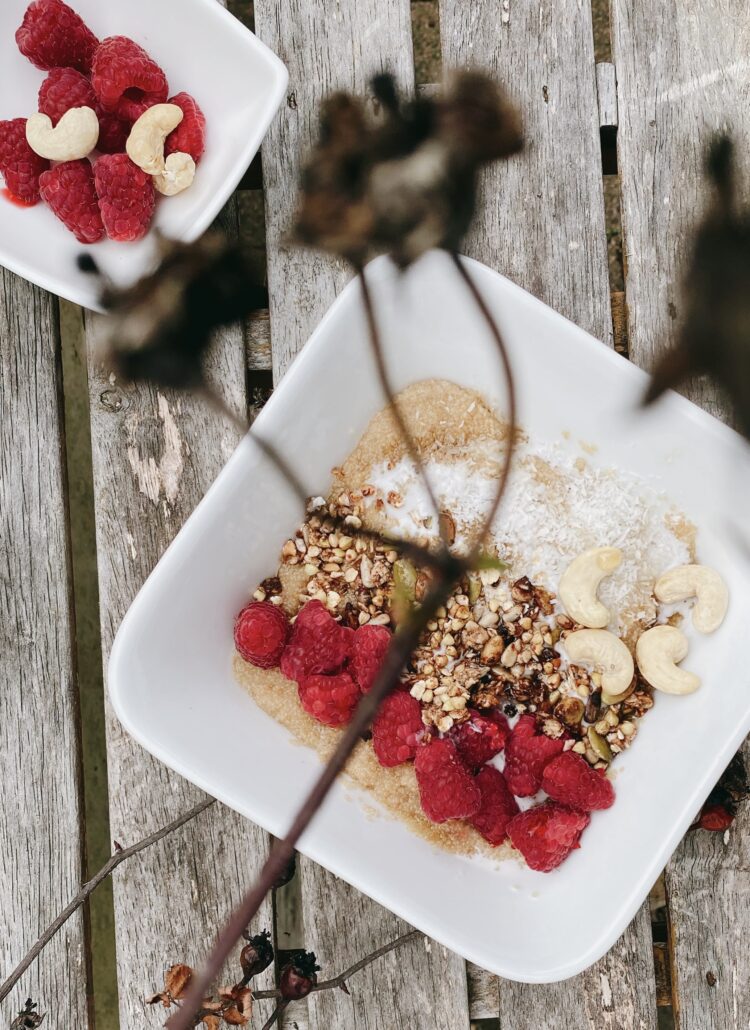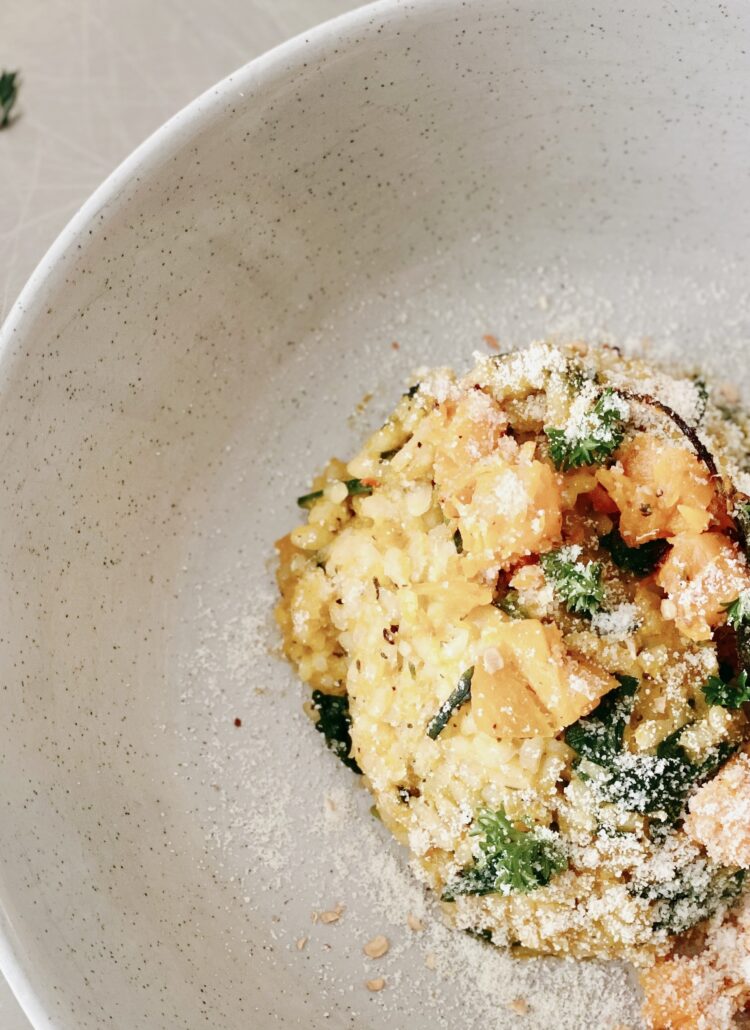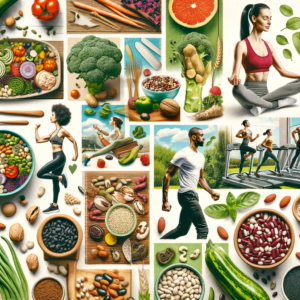Leucine is an essential amino acid that plays a vital role in protein synthesis, muscle growth, and recovery. While plant-based diets are often associated with a lack of protein, we’re here to show you that there are plenty of leucine-rich vegan foods to incorporate into your diet.
By including these foods in your meals, you can ensure that your body receives enough leucine to support your fitness goals and overall health. Let’s dive in and explore the best vegan sources of leucine!

Table of Contents
- Understanding Leucine and its Benefits
- Legumes: A Leucine Powerhouse for Vegans
- Quinoa: A Complete Protein Source with Leucine
- Nuts and Seeds: Healthy Fats and Leucine Combo
- Tofu and Tempeh: Plant-Derived Leucine Sources
- Whole Grains: Leucine-Rich Carbohydrate Sources
- Spirulina and Chlorella: Vegan Superfoods with Leucine
- Vegan Leucine Supplements: A Convenient Option
- Combining Leucine-Rich Foods for Optimal Results
- Delicious Recipes Using Vegan Leucine Sources
- The Importance of Balanced Nutrition in a Vegan Diet
- Frequently Asked Questions About Vegan Sources of Leucine
Understanding Leucine and its Benefits
Leucine is an essential amino acid that plays a crucial role in protein synthesis, the process by which the body builds and repairs muscle tissue. It is particularly important for individuals who engage in regular physical activity and exercise, as it helps to promote muscle growth and recovery.
Leucine also offers other important benefits for overall health and well-being. Studies have shown that it may help to regulate blood sugar levels, support immune function, and improve cognitive function.
How does leucine work?
Leucine stimulates a pathway in the body known as the mammalian target of rapamycin (mTOR) pathway. This pathway triggers protein synthesis and helps to build new muscle tissue.
Additionally, leucine helps to reduce the breakdown of muscle tissue by inhibiting the activity of a protein called myostatin. This allows for greater muscle growth and recovery.
It is important to note that while leucine is essential for muscle growth and recovery, it is not effective on its own. It needs to be consumed in combination with other essential amino acids, as well as an overall balanced diet.
Legumes: A Leucine Powerhouse for Vegans
Legumes are a staple in many plant-based diets, and for good reason. Not only are they rich in fiber, vitamins, and minerals, but they also provide an excellent source of protein. In fact, legumes are one of the best sources of leucine for vegans.
Lentils, chickpeas, black beans, and kidney beans are just a few examples of leucine-rich legumes that can easily be incorporated into a variety of dishes. Lentils, for instance, contain almost 1 gram of leucine per 100 grams, making them an excellent choice for those looking to boost their leucine intake.
| Legume | Leucine Content (per 100g) |
|---|---|
| Lentils | 0.97g |
| Chickpeas | 0.84g |
| Black Beans | 0.91g |
| Kidney Beans | 0.82g |
| Soybeans | 2.97g |
| Navy Beans | 0.75g |
| Pinto Beans | 0.79g |
| Peas | 0.69g |
| Mung Beans | 1.03g |
| White Beans | 0.80g |
| Adzuki Beans | 0.88g |
| Lima Beans | 0.63g |
| Fava Beans | 1.14g |
| Black-eyed Peas | 0.75g |
Legumes are not only rich in leucine, but they are also incredibly versatile in vegan cooking. From salads to soups to stews, there are endless ways to incorporate legumes into your meals. They can also be used as a replacement for meat in traditional dishes like chili or tacos.
Read Also:
- The Role of Amino Acids in Muscle Growth Explained
- Debunking BCAAs Myths: Uncovering the Truth About Amino Acids
Quinoa: A Complete Protein Source with Leucine
If you’re looking for a complete protein source that’s also rich in leucine, quinoa is an excellent choice. This gluten-free grain is a favorite among vegans and vegetarians thanks to its impressive nutritional profile.
Quinoa contains all nine essential amino acids, making it a complete protein. In fact, a cup of cooked quinoa contains about 8 grams of protein, making it an excellent plant-based protein source that’s also rich in leucine.
Aside from protein and leucine, quinoa is also rich in other nutrients such as fiber, magnesium, and iron. It’s also high in antioxidants, which can help protect your cells from damage caused by free radicals.
One of the best things about quinoa is its versatility. It can be used in a wide variety of dishes, from salads to soups and stews. You can also use it as a base for plant-based burgers or veggie bowls.
Here’s a simple and delicious recipe to try:
Quinoa Salad with Roasted Vegetables
- 1 cup quinoa, rinsed and drained
- 2 cups vegetable broth
- 1 red onion, sliced
- 2 bell peppers, sliced
- 2 cups cherry tomatoes
- 2 tablespoons olive oil
- 2 cloves garlic, minced
- 1 teaspoon smoked paprika
- Salt and pepper to taste
Preheat the oven to 400°F. In a large bowl, toss the vegetables with olive oil, garlic, smoked paprika, salt, and pepper. Spread on a baking sheet and roast for 25-30 minutes, stirring halfway through.
In a medium saucepan, bring the vegetable broth to a boil. Add the quinoa, reduce the heat to low, and simmer for 15 minutes.
Once the quinoa and vegetables are done, combine them in a large bowl. Drizzle with olive oil and lemon juice and season with salt and pepper to taste.
Serve warm or chilled. Enjoy!
Nuts and Seeds: Healthy Fats and Leucine Combo
Nuts and seeds are a delicious and nutritious addition to any vegan diet. Not only do they provide healthy fats and other essential nutrients, but they also contain adequate amounts of leucine. Incorporating nuts and seeds into your plant-based meals can help ensure you are meeting your daily leucine needs.
Here are some nuts and seeds that are particularly high in leucine:
| Nut/Seed | Leucine Content per 100g |
|---|---|
| Pumpkin Seeds | 2.642g |
| Almonds | 1.632g |
| Cashews | 1.425g |
| Pistachios | 1.333g |
| Walnuts | 0.918g |
| Pecans | 0.752g |
Aside from their high leucine content, nuts and seeds also provide other important nutrients such as fiber, vitamin E, and magnesium. They can be enjoyed as a snack on their own or added to meals in various ways. For example, try sprinkling some pumpkin seeds on top of a salad or adding chopped almonds to your morning oatmeal.
It’s important to keep in mind that nuts and seeds are also high in calories, so it’s best to consume them in moderation.
Tofu and Tempeh: Plant-Derived Leucine Sources
For vegans looking to incorporate adequate amounts of protein and leucine into their diets, tofu and tempeh are excellent options. Both are plant-derived protein sources that provide a good amount of leucine, making them valuable additions to a vegan diet.
Tofu, also known as bean curd, is made by curdling soy milk and pressing the resulting curds into a solid block. It is a versatile ingredient that can be used in a variety of dishes, from stir-fries to smoothies. Tofu contains about 1.2 grams of leucine per 100 grams, making it one of the best plant-based sources of the amino acid.
Tempeh is a fermented soybean product that originated in Indonesia. It has a nutty flavor and firm texture, and is commonly used as a meat substitute in various dishes. Tempeh also contains a good amount of leucine, with about 1.7 grams of leucine per 100 grams.
Incorporating tofu and tempeh into meals is easy and can be done in a variety of ways. Tofu can be grilled, baked, fried, or scrambled, while tempeh can be marinated, sliced, or crumbled. Tofu and tempeh can also be added to salads, soups, and sandwiches.
Note: Some brands of tofu and tempeh may be fortified with additional nutrients, so always check the label to ensure adequate leucine content.
🔍 You can find our mouthwatering recipes including tofu here.
Whole Grains: Leucine-Rich Carbohydrate Sources
Whole grains are a nutritious staple in any diet, but they are especially valuable in a vegan diet as a source of both carbohydrates and leucine. Brown rice, quinoa, and oats are all excellent sources of this essential amino acid.
Quinoa is particularly notable as a complete protein with all nine essential amino acids, including leucine. Brown rice is another excellent option for adding leucine to your diet. It is a great base for bowls and stir-fries or as a side dish to a protein-rich main course. Oats are also a versatile whole grain that can be enjoyed as a breakfast staple or incorporated into baked goods.
When incorporating whole grains into your diet, it’s important to choose whole grain varieties over refined grains to maximize their nutritional value. Look for labels that specify “whole grain” or “100% whole wheat” to ensure you’re getting the most benefits.
Spirulina and Chlorella: Vegan Superfoods with Leucine
If you’re looking for a powerful source of leucine, look no further than spirulina and chlorella. These two vegan superfoods are packed with protein and essential amino acids, including leucine.
Spirulina is a type of blue-green algae that has been consumed for centuries for its health benefits. It is a complete protein source, meaning it contains all nine essential amino acids that the body cannot produce on its own. Spirulina is also rich in antioxidants and anti-inflammatory compounds that promote overall health and may even prevent chronic disease.
Chlorella is another type of algae that is often referred to as a “superfood” due to its impressive nutrient profile. Like spirulina, chlorella is a complete protein source and contains high levels of leucine. Chlorella is also rich in vitamins, minerals, and antioxidants that support immune function and overall health.
Both spirulina and chlorella are available in powder or tablet form, making them easy to incorporate into your daily routine.
How to Incorporate Spirulina and Chlorella into Your Diet
Here are a few ideas for incorporating spirulina and chlorella into your diet:
- Add spirulina powder to your morning smoothie or green juice for an extra boost of protein and nutrients.
- Mix chlorella powder into salad dressings or dips for a savory, nutrient-rich boost.
- Add spirulina or chlorella tablets to your daily supplement routine to ensure you’re getting enough leucine and other essential nutrients.
Whether you’re looking to boost your protein intake, support muscle growth, or simply promote overall health and well-being, spirulina and chlorella are excellent vegan sources of leucine that are definitely worth adding to your diet.
Vegan Leucine Supplements: A Convenient Option
For some individuals, meeting their leucine needs through a plant-based diet alone may be challenging. In such cases, vegan leucine supplements may be a convenient option to consider.
Leucine supplements are typically available in powder form and can easily be mixed into shakes or smoothies. They are made from plant-based sources such as brown rice protein and pea protein, making them suitable for vegans.
It is important to note that while leucine supplements can be helpful in meeting daily requirements, they should not be relied on as a sole source of nutrition. It is always best to obtain nutrients through a balanced diet that includes a variety of whole foods.
Recommended dosage for leucine supplements is typically around 2-5 grams per day. However, it is always best to consult with a healthcare provider before adding any new supplements to your routine.
Combining Leucine-Rich Foods for Optimal Results
While incorporating leucine-rich plant-based foods into your diet is essential, it is equally important to consume them in the right combinations to maximize their benefits.
When it comes to protein synthesis, leucine works best when paired with other essential amino acids such as isoleucine and valine. This is why whole-food sources of protein like legumes and whole grains are beneficial for vegans. They provide a balance of amino acids that work together to support muscle growth and repair.
Combining leucine-rich plant-based foods with other nutrient-dense ingredients such as leafy greens and colorful vegetables can also provide the necessary vitamins and minerals needed for optimal health.
For example, a quinoa salad with black beans, peppers, and spinach not only provides a healthy dose of leucine but also a variety of vitamins and minerals like iron, vitamin C, and folate.
Here are some other tasty combinations to try:
- Lentils and kale in a hearty soup
- Tofu stir-fry with broccoli and carrots
- Chickpeas and sweet potatoes in a spicy curry
Remember, variety is key. Incorporating different leucine-rich plant-based foods and pairing them with other nutrient-dense ingredients can help you meet your daily nutritional needs and support optimal health.
Delicious Recipes Using Vegan Leucine Sources
Incorporating leucine-rich plant-based foods into your diet doesn’t have to be boring or difficult. Here are some mouth-watering vegan recipes that are not only high in leucine, but also full of flavor and nutrition.
Lentil and Chickpea Curry
| Ingredients | Instructions |
|---|---|
|
|
Quinoa and Black Bean Salad
| Ingredients | Instructions |
|---|---|
|
|
Spirulina and Chlorella Smoothie
| Ingredients | Instructions |
|---|---|
|
|
These recipes are just a few examples of the many delicious and nutritious ways to include leucine-rich plant-based foods in your diet. Get creative and experiment with different combinations and flavors to find your favorites.
The Importance of Balanced Nutrition in a Vegan Diet
While incorporating leucine-rich plant-based foods into your diet is important, it is equally essential to focus on balanced nutrition. As a vegan, it is crucial to ensure adequate intake of all essential nutrients, including protein, carbohydrates, healthy fats, vitamins, and minerals.
It is important to note that leucine is just one of the many amino acids needed for protein synthesis in the body. Therefore, relying solely on leucine-rich plant-based foods may not provide enough of the other essential amino acids needed for optimal health and muscle growth.
It is recommended to consume a variety of plant-based foods to ensure a well-rounded and balanced diet. This includes a variety of fruits, vegetables, whole grains, legumes, nuts, and seeds. Additionally, it may be beneficial to supplement with a vegan protein powder or other supplements to ensure adequate intake of essential nutrients.
Consulting with a registered dietitian or healthcare provider can also be helpful in designing a well-balanced vegan diet that meets your individual nutritional needs.
References
Here are the sources used in this article to provide you with accurate and reliable information:
| Source | Link |
|---|---|
| “Leucine – Health Professional Fact Sheet.” National Institutes of Health Office of Dietary Supplements, U.S. Department of Health and Human Services, ods.od.nih.gov/factsheets/Leucine-HealthProfessional/. | ods.od.nih.gov/factsheets/Leucine-HealthProfessional/ |
| “Protein in Vegetarian and Vegan Diets.” Vegetarian Nutrition Dietetic Practice Group, Academy of Nutrition and Dietetics, pubmed.ncbi.nlm.nih.gov/27886704/. | pubmed.ncbi.nlm.nih.gov/27886704/ |
| Wolfe, Robert R. “Branched-Chain Amino Acids and Their Importance in Nutrition.” The Journal of Nutrition, vol. 135, no. 6, June 2005, pp. 1539S–1546S., doi.org/10.1093/jn/135.6.1539S. | doi.org/10.1093/jn/135.6.1539S |
| “Legume Nutrient Composition.” Agriculture and Agri-Food Canada, agr.gc.ca/eng/industry-markets-and-trade/statistics-and-market-information/by-product-sector/processed-food-and-beverages/legume-nutrient-composition/?id=1463698182249. | agr.gc.ca/eng/industry-markets-and-trade/statistics-and-market-information/by-product-sector/processed-food-and-beverages/legume-nutrient-composition/?id=1463698182249 |
| “Tofu, Tempeh, and Edamame.” The Nutrition Source, Harvard T.H. Chan School of Public Health, hsph.harvard.edu/nutritionsource/food-features/tofu/. | hsph.harvard.edu/nutritionsource/food-features/tofu/ |
| “Whole Grains.” The Nutrition Source, Harvard T.H. Chan School of Public Health, hsph.harvard.edu/nutritionsource/what-should-you-eat/whole-grains/. | hsph.harvard.edu/nutritionsource/what-should-you-eat/whole-grains/ |
Frequently Asked Questions About Vegan Sources of Leucine
Here are some common questions related to vegan sources of leucine:
What is leucine, and why is it important in a vegan diet?
Leucine is one of the nine essential amino acids that the body cannot produce on its own. It plays a crucial role in protein synthesis, which is necessary for muscle growth and recovery. Including sufficient amounts of leucine in a vegan diet is important to maintain optimal muscle health.
What are some vegan sources of leucine?
Plant-based sources of leucine include legumes (such as lentils, chickpeas, and black beans), quinoa, nuts and seeds, tofu and tempeh, whole grains (such as brown rice and oats), spirulina, and chlorella. By incorporating a variety of these foods into your diet, you can meet your daily leucine needs.
Can I take vegan leucine supplements?
Yes, vegan leucine supplements are available for individuals who may have difficulty meeting their leucine needs through diet alone. However, it is important to use supplements as directed and to speak with a healthcare professional before starting any new supplements.
How much leucine do I need in a day?
The daily recommended intake of leucine is around 2-3 grams per day for adults. However, individual needs may vary depending on factors such as age, gender, and activity level.
Can vegans get enough leucine from their diet?
Yes, vegans can absolutely get enough leucine from their diet. There are plenty of plant-based sources of leucine, including legumes, grains, nuts, and seeds. By incorporating a variety of these foods into their diet, vegans can easily meet their leucine needs.
Can I get too much leucine from my diet or supplements?
While it is possible to consume too much leucine, this is unlikely to occur through dietary sources alone. However, taking high doses of leucine supplements may lead to potential side effects such as nausea, diarrhea, and elevated ammonia levels. It is always best to consult a healthcare professional before taking any supplements.
Is leucine the only essential nutrient I need to worry about as a vegan?
No, leucine is just one of many essential nutrients that vegans need to consider when planning their diet. It is important to ensure adequate intake of vitamins B12 and D, calcium, iron, and omega-3 fatty acids. Eating a balanced and varied diet rich in whole, nutrient-dense foods is key to meeting all of your nutritional needs.



